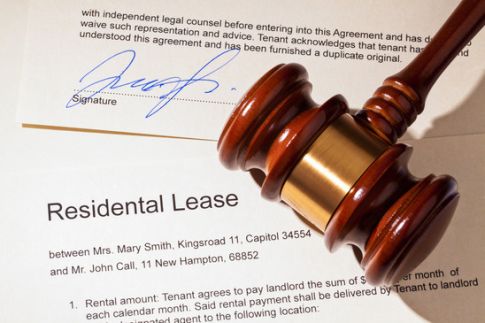Should You Co-sign an Apartment Lease?
 When going to college, many students prefer to move out of university housing after a couple of years at which point they move into an off-campus house or apartment. While this can be a fun way to live, landlords take their property management business very seriously and are well aware that most college students do not have the income to comfortably afford the rent payment. Because of this, many landlords will require that the parents, or someone else, co-sign the lease. Prior to co-signing any lease, there are several factors that you should take into consideration.
When going to college, many students prefer to move out of university housing after a couple of years at which point they move into an off-campus house or apartment. While this can be a fun way to live, landlords take their property management business very seriously and are well aware that most college students do not have the income to comfortably afford the rent payment. Because of this, many landlords will require that the parents, or someone else, co-sign the lease. Prior to co-signing any lease, there are several factors that you should take into consideration.
Know the Risks
Before you co-sign any lease, you need to be aware of the risks. While there are no real advantages to you personally, you may feel obligated to help your child. The most significant ultimate risk is that you will have to pay the rent if your child fails to do so. Another risk is that if your child falls behind on the rent payments and does not tell you, the landlord could take both you and your child through the collections process. This could be devastating to your credit score and prevent you from getting credit going forward.
Related: You Can Buy A Home Even With Not So Great Credit.
Are Other Options Available
Prior to co-signing your child’s lease, one factor you must consider is whether there are other alternatives. One of the reasons why you may not want to co-sign a lease is that you may need to report it as a contingent liability on applications for credit. Since this could be viewed as a negative mark by creditors, finding another alternative could be a good option. One option would be to post a cash deposit with the landlord. While most landlords require you to post a security deposit, you could also post a prepaid rent deposit. If you offer to post the last few months’ rent as collateral for the lease, it could give the landlord enough security that they will be willing to accept the lease without your signature.
Can You Afford the Rent
Prior to co-signing any lease, you should also consider whether you can actually afford to make the rent payments if you are required to do so. With a co-signature, you are basically saying that you will make the rent payments if the lessee fails to do so. Because of this, you could be stuck with the rent payments every month. While the likelihood of actually having to pay the rent may be low, you need to be ready for the worst case scenario in which you will have to make the payment. If this is not something that you could reasonably afford, then you should avoid co-signing as it could ultimately ruin your credit as well.
Related: Ready for a Major Rent Hike.
Learn the Terms of the Lease
Before you sign a lease, or any legal document, you should be well aware of what all the terms of the lease are. You should spend some time reading through all of the fine print so you can get an understanding of what the responsibilities of the landlord and tenants are. This should include maintenance obligations, requirements to bring in their own furniture and appliances, and what deposits are required before the lease is signed. You should also determine what rights you have to terminate of sub-lease the apartment or house. This could be very important because if your student opts to leave school or the lease is no longer affordable, you will be able to terminate the lease early without having to pay rent for the remainder of the term. Ultimately, this could save you thousands of extra dollars over the course of a year.
Article contribution by Natalia Morgan.